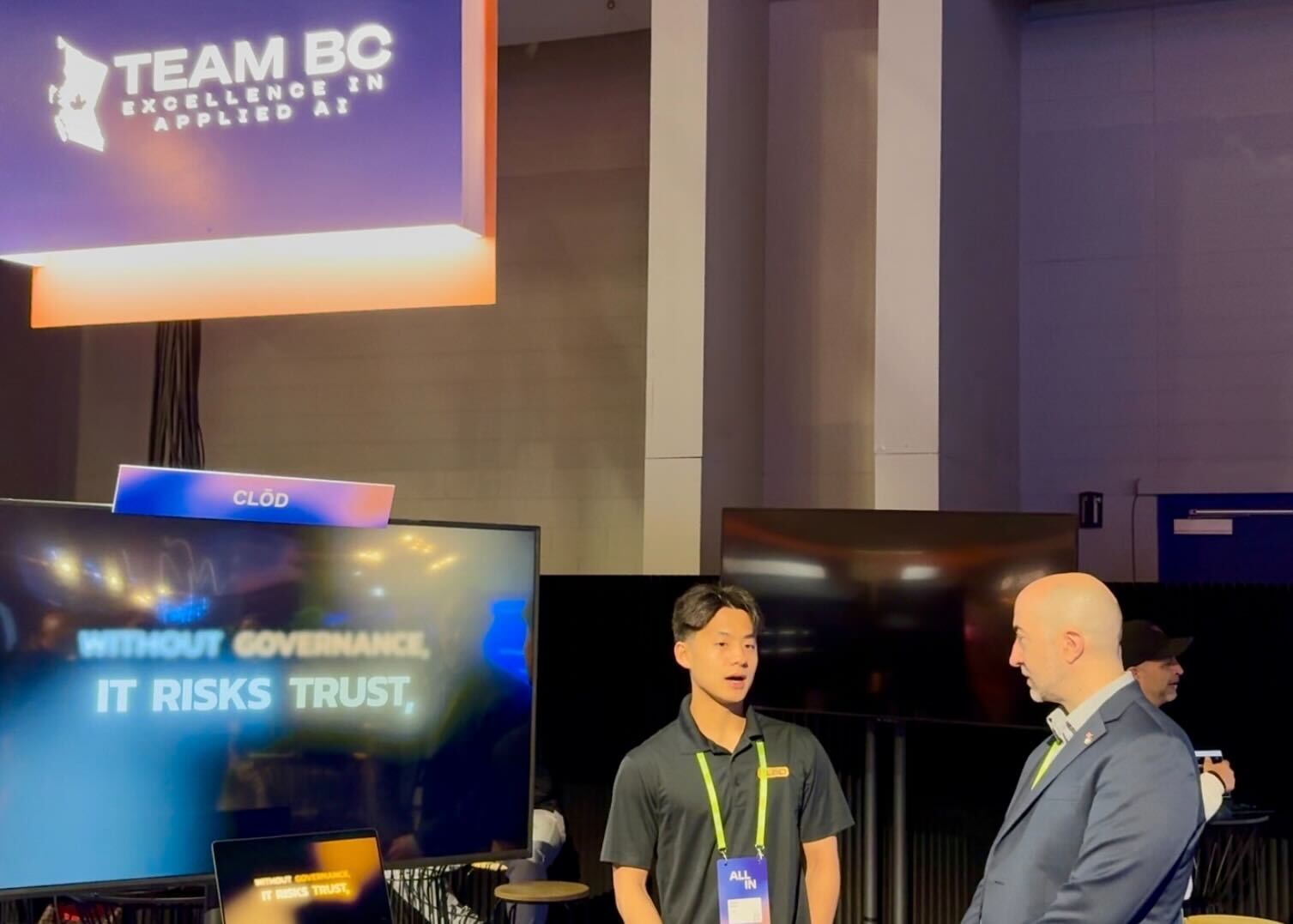A Q&A with Rob Goehring, Executive Director of AInBC, on BC’s unique AI strengths, why public trust in AI remains low, and how governance can help build confidence and adoption.

George Nie
October 1, 2025

Rob Goehring: Statistically, we now have over 600 AI companies in BC, and the ecosystem continues to grow. It’s very diverse, covering everything from green tech, mining, ag-tech, energy, computing, to digital sectors. And BC’s real differentiator is our ability to take AI research and actually turn it into practical applications and products. That’s where we stand out.
Our take: Turning research breakthroughs into real-world products is exactly where governance often becomes the missing link. That balance between enabling fast innovation and embedding reliability and compliance is one of the biggest challenges we see across industries.
Rob Goehring: Honestly, it has to come from all of the above. Canada was the first country in the world, back in 2017, to launch a national AI policy (Pan-Canadian AI Strategy, or PCAIS). We also have privacy legislation, but gaps remain, and that has caused some lack of trust. And yes, this lack of trust is slowing adoption quite dramatically.
We need strong but balanced regulation, as our AI Minister Evan Solomon put it, “light, right, and tight.” We also need companies to demonstrate through practice that AI can be safe and reliable. And finally, we need companies to talk about how they’re building with AI openly, so the public understands why AI can be trusted when it’s governed responsibly.
Our take: The “light, right, and tight” framing captures the balance perfectly. But regulation alone won’t rebuild trust; it also comes from companies proving, in practice, that their systems are safe and compliant. From our perspective, trust is built in the details: how policies are enforced, how data is handled, how privacy is protected, and how transparent systems are about what’s happening under the hood.
Rob Goehring: I already see some promising signals. For example, we convened a meeting with Canada's AI Minister Evan Solomon in Vancouver recently, and the demand for AI courses at UBC and the University of Toronto is off the charts: every course is oversubscribed. That shows people want to learn and understand this technology.
At the national level, Canada is working to align with the EU and UK on value-aligned AI. That’s an area of strength for us, compared to countries that may be pushing faster with less concern for ethics. We can lead from the center.
And finally, signals like customer rights, proper data treatment, and the growth of sovereign compute capacity in Canada, with major players like Cohere, TELUS, Bell, and OVH building local infrastructure, all point to positive progress.
Our take: The signals Rob highlights all point to a maturing AI ecosystem. They’re also the same signals we hear from enterprises at ALL IN 2025: a desire for innovating with AI responsibly and systems that can demonstrate reliability at scale.
—-
Conversations like this reinforce why launching CLōD at ALL IN 2025, alongside Team BC and AInBC, felt so timely. As Rob highlighted, Canada has the opportunity to lead in trustworthy, value-aligned AI, but it requires building trust into the foundation of innovation.
That’s the vision behind CLōD: making governance, compliance, and reliability part of the AI workflow from the very start, so teams with bold ideas can go further.
We’re grateful to Rob and the AI Network of BC for their leadership and for sharing their perspective during this pivotal moment.
CLōD is now available in Early Access. To learn more, visit clod.io